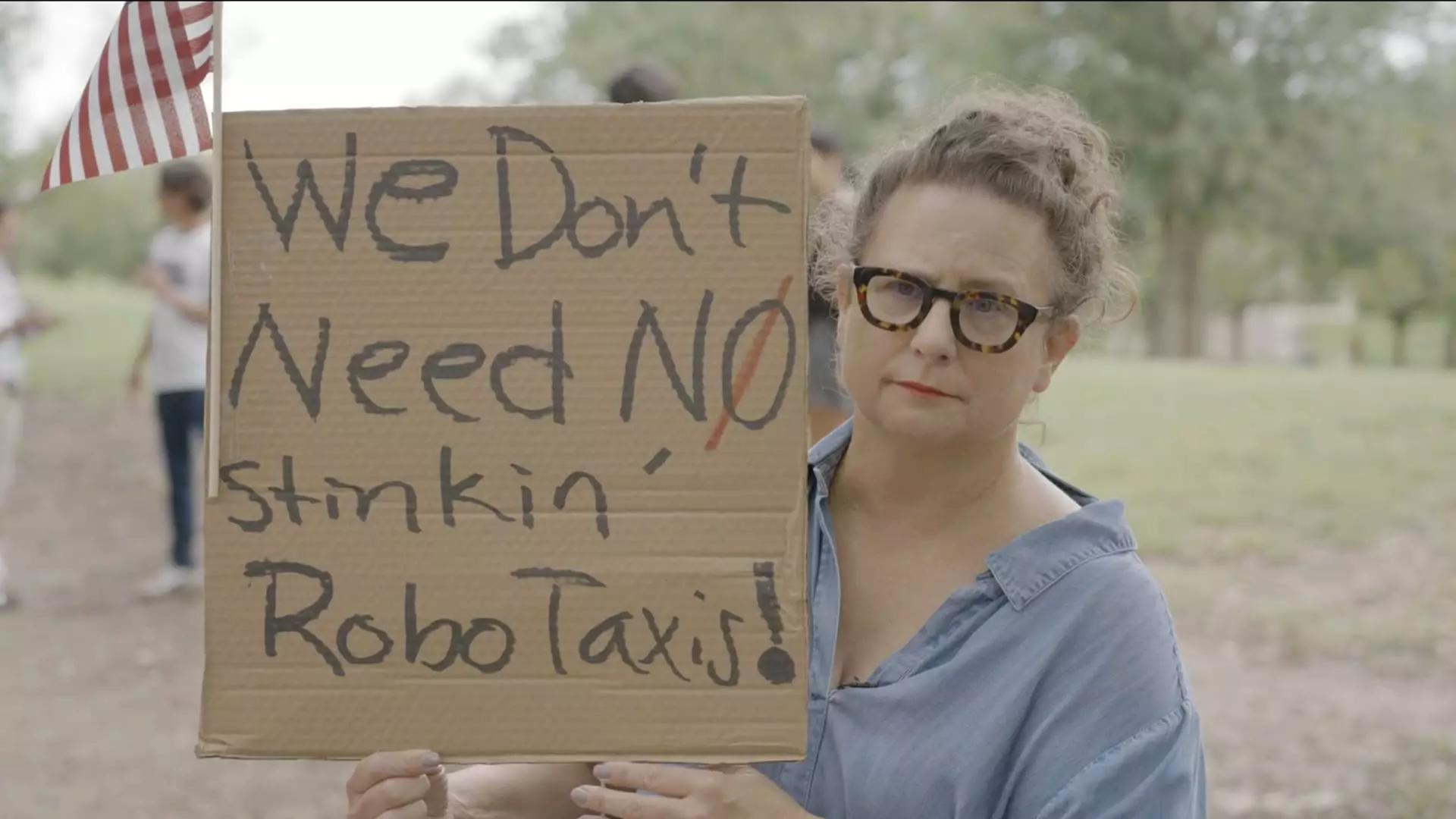As Tesla approaches its ambitious goal of launching a pilot robotaxi service in Austin, Texas, scheduled for June 22, the glittering facade of this innovation is marred by outrage from various factions. While the prospect of self-driving taxis promises a futuristic alteration to urban transportation, the implications of pressuring such technology into the market raise alarm bells over public safety. Critics, particularly from the Dawn Project, Tesla Takedown, and Resist Austin, express significant concerns about Tesla’s history of compromised safety standards—issues magnified by Elon Musk’s controversial proximity to political power, especially during his association with the Trump administration.
Safety Concerns Are Not Just Noise
Public safety advocates are not merely reacting passionately but are armed with compelling statistics. Fatalities linked to Tesla’s Autopilot and Full Self-Driving systems unveil a disturbing trend; lives are often sacrificed at the altar of technological advancement. The data compiled by the National Highway Traffic Safety Administration discloses that these purportedly ‘automated’ vehicles have been involved in hundreds of accidents, including shocking incidents where loss of life occurred. When public sentiment turns hostile, it becomes increasingly evident that Tesla is caught in a precarious balancing act between innovation and responsibility.
A Troubling Demonstration
At the forefront of this discontent was a recent demonstration staged in downtown Austin. Critics utilized a Tesla Model Y fitted with the allegedly advanced FSD software to showcase a harrowing scenario: zooming past a school bus with its stop sign extended and running over a child-sized mannequin. This macabre spectacle aimed to underline their claims that Tesla’s autonomous driving systems are phenomenally flawed, effectively voicing their demand for accountability and transparency from a tech giant often shielded by Musk’s public persona and charisma.
The Disconnect Between Innovation and Ethics
Tesla’s ongoing push for automated vehicles unearths a troubling ethical dilemma—do technological advancements justify the inherent risks? Advocates like Stephanie Gomez contend that the absence of transparency surrounding safety metrics amplifies distrust. This sentiment resonates with countless citizens who grapple with the ethical implications of hastily rolling out half-baked technological experiments, particularly in a society that is still wrestling with the fundamental question of how much autonomy we wish to cede to machines.
Musk’s Political Leverage and Its Fallout
Adding another layer of complexity to this issue is Musk’s audacious foray into politics. Critics like Silvia Revelis illustrate a discontent that goes beyond mere vehicle safety—they pinpoint a deeper issue of political ethics. When a tech executive influences governmental decisions, it raises pressing questions about the motivations driving policies that affect public safety. It’s an unsettling cocktail of technological ambition and political maneuvering, provoking skepticism about Musk’s priorities. His fearless yet reckless approach not only places safety in jeopardy but also engenders a sense of disenfranchisement among those who should be protected—everyday citizens.
As Tesla races forward, propelled by Musk’s visionary, yet contentious, leadership, the specter of unchecked ambition looms large. The moral imperative lies in ensuring that the thirst for innovation does not eclipse the fundamental right to safety.

Leave a Reply